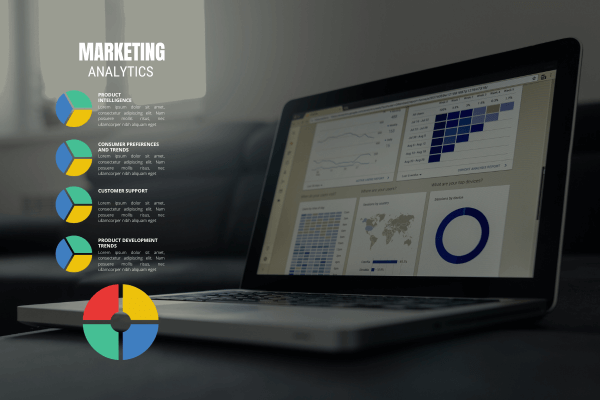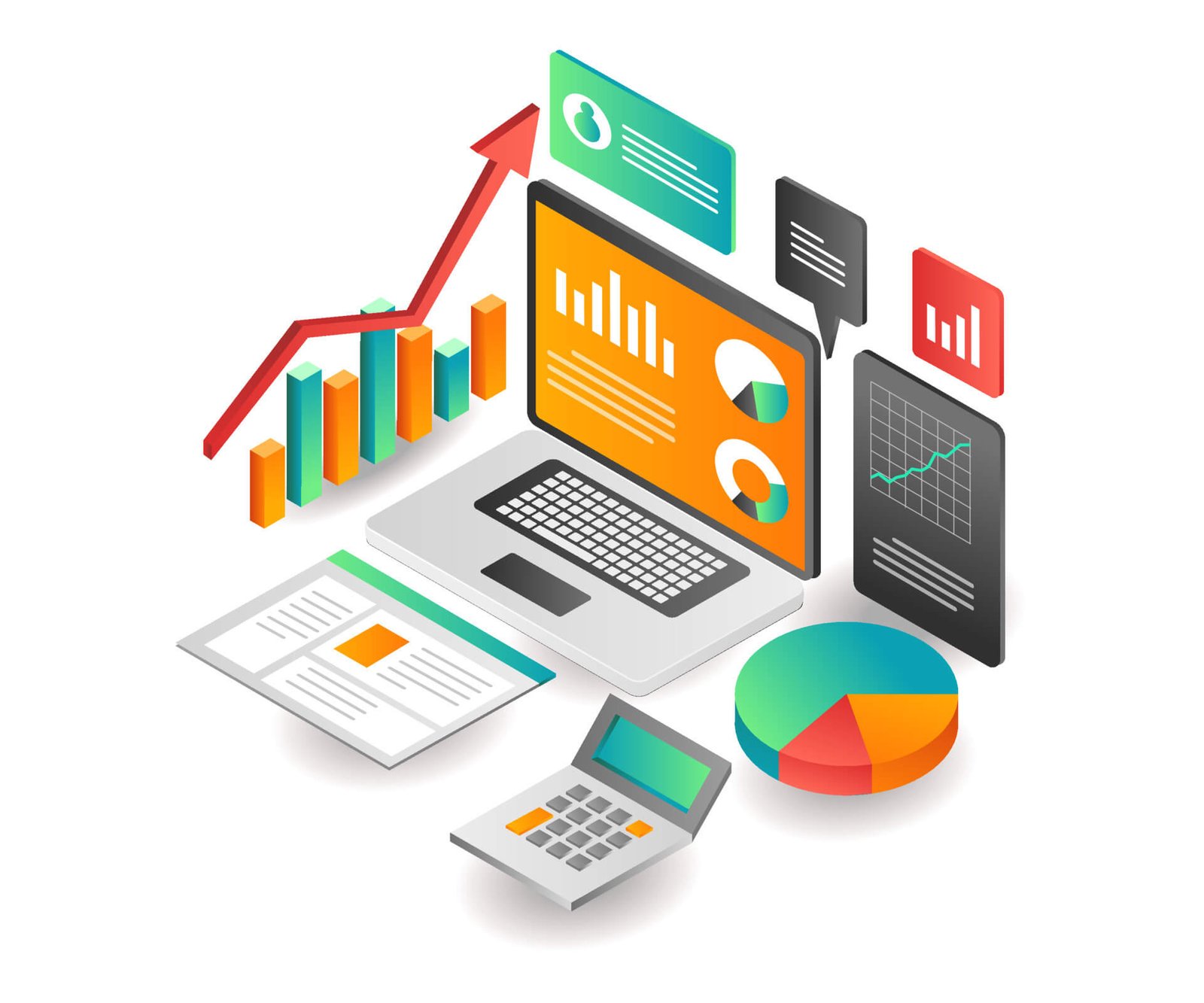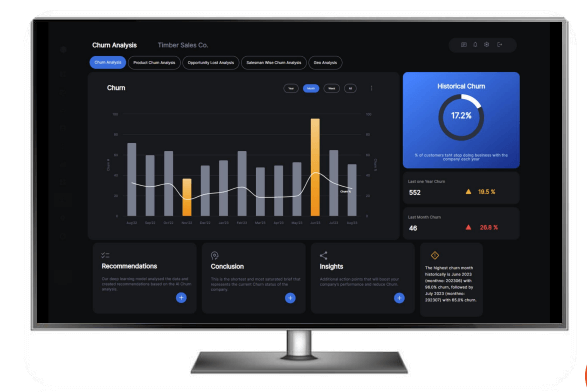EMAIL AT- support@itldigitaltech.com CALL AT- +8801830312344
Turn Data into Dollars: Business Analytics Solutions for Smarter Decisions

In today’s data-driven business landscape, data analytics has emerged as a transformative force, providing enormous benefits to organizations across industries. By harnessing the power of data analytics, businesses can gain a competitive edge and achieve success in many ways.
More
In today’s data-driven business landscape, data analytics has emerged as a transformative force, providing enormous benefits to organizations across industries. By harnessing the power of data analytics, businesses can gain a competitive edge and achieve success in many ways.
Informed Decisions: Data analytics empowers businesses to make well-informed decisions by providing insights derived from comprehensive data analysis. It enables companies to identify market trends, customer behavior and emerging opportunities. With data-driven insights, decision makers can navigate challenges more effectively and stay ahead of the competition.
Improved efficiency: Data analytics streamlines operations and increases overall efficiency. It helps identify bottlenecks, optimize processes and allocate resources more effectively. This leads to reduced waste and improved productivity, which ultimately strengthens the bottom line.
Cost reduction: Data analysis can uncover cost-saving opportunities. By identifying areas where costs can be reduced without compromising quality, data analytics can have a direct impact on the bottom line. This is especially important for companies looking to maximize profitability.
Achieving Business Objectives: Data analytics is a powerful tool for aligning strategies with business objectives. Whether it’s enhancing the customer experience, launching successful marketing campaigns or improving product quality, data-driven insights ensure that initiatives are tailored to achieve specific goals.
In conclusion, data analytics is not just a tool; It is a strategic asset that helps businesses make informed decisions, operate efficiently, reduce costs and ultimately achieve their business objectives.
Digital Marketing services
Data Analytics Services

Descriptive Analytics
Details
Descriptive analytics is a type of data analysis that focuses on summarizing and interpreting historical data to understand what has happened in the past. It involves collecting, processing, and analyzing data to provide insights and context, often through reports, dashboards, or visualizations.
Key aspects of descriptive analytics include:
- Data Aggregation: Combining data from various sources to create a comprehensive view.
- Statistical Analysis: Applying statistical methods to identify trends, patterns, and relationships within the data.
- Visualization: Using charts, graphs, and dashboards to make the data more understandable and accessible.
- Performance Measurement: Tracking key performance indicators (KPIs) to evaluate business performance over time.
Overall, descriptive analytics helps organizations gain insights into past performance, which can inform decision-making and strategy development.

Predictive Analytics
Details
In the dynamic world of data analytics, predictive analytics stands out as a powerful tool for predicting future outcomes based on historical data. This section of analytics uses statistical algorithms and machine learning to provide insights into what might happen next. Predictive analytics plays an important role in helping organizations make proactive decisions. Here are some key types of predictive analytics:
- Time Series Analysis: Forecasting future values based on past time-based data.
- Regression Analysis: Predicting a numerical result based on the relationship between variables.
- Hierarchical analysis: Classifying data into predefined categories or labels.
- Machine learning models: Using algorithms to make predictions based on patterns in data.
- Churn analysis: Predicting customer churn and implementing retention strategies.
Predictive analytics enables organizations to prepare for the future, make data-driven decisions and gain a competitive edge in data analytics.

Prescriptive Analytics
Details
Data analytics continue to shape the way businesses make decisions, providing a variety of powerful tools to drive optimal results. Among these, prescriptive analytics stands out as a dynamic category, which provides specific recommendations to achieve desired results. Here, we discuss different types of prescriptive analytics:
- Decision Optimization: Maximizing the best choice within constraints
- Recommendation Engine: Personalized suggestions for users.
- Dynamic Pricing: Real-time price adjustments for revenue maximization.
- Resource Allocation: Efficient Allocation in Different Domains.
- Treatment Planning in Health Care: Tailoring Treatment Interventions.
- Portfolio Optimization: Balancing Return and Risk in Finance.
- Energy Consumption Optimization: Sustainable Energy Management.
- Credit Scoring and Risk Assessment: Informed Lending Decision
- Marketing Campaign Optimization: Improving Marketing Strategy.
- Quality Control: Maintaining or improving product quality.
Prescriptive analytics equips organizations to make data-driven decisions, streamline operations, and achieve targeted goals across industries.

Diagnostic Analytics
Details
In the ever-evolving landscape of data analytics, diagnostic analytics plays an important role in understanding the “why” behind past events. This section of analysis focuses on understanding historical data patterns and root causes of discrepancies. By using a variety of techniques, organizations can gain deep insights and uncover the factors that contribute to specific outcomes. Here are some key types of diagnostic analytics:
- Root Cause Analysis: Identifying underlying causes for specific results or problems.
- Correlation analysis: uncovering relationships and dependencies between different variables.
- Regression Analysis: Evaluating the effect of one or more factors on a particular outcome.
- A/B Testing: Comparing two or more variations to determine what affects results.
- Cohort analysis: Grouping data into subsets to examine specific characteristics and behaviors.
Diagnostic analytics acts as a bridge between descriptive and predictive analytics, helping organizations not only understand past events but also analyze data to make more informed decisions and shape future outcomes.

Impact of Data Analytics In Business
Data analytics is revolutionizing the business landscape, having an indelible impact across industries. This powerful discipline uses data to offer valuable insights, redefine strategies and drive innovation. The impact of data analytics on business is profound, enabling:
- Informed Decision Making: Data analytics enables organizations to make data-driven decisions, improving accuracy and results.
- Improving efficiency: By identifying inefficiencies and streamlining processes, businesses increase productivity and reduce costs.
- Customer-centric strategy: By analyzing customer behavior, companies create personalized experiences, increasing loyalty.
- Risk Mitigation: Advanced analytics helps assess risk, from fraud detection to regulatory compliance
- Competitive Edge: Data analytics provides a competitive advantage by anticipating market trends and proactively responding.
Businesses that take advantage of data analytics gain not only insight but a strategic edge, allowing them to thrive in today’s data-driven world.
Send Message For Inquiry
Ready to speak with a marketing expert? Give us a ring +8801830312344
- Leading Digital Services Agency
- 100+ Websites Launched
- $6M+ Client Revenue Generated



